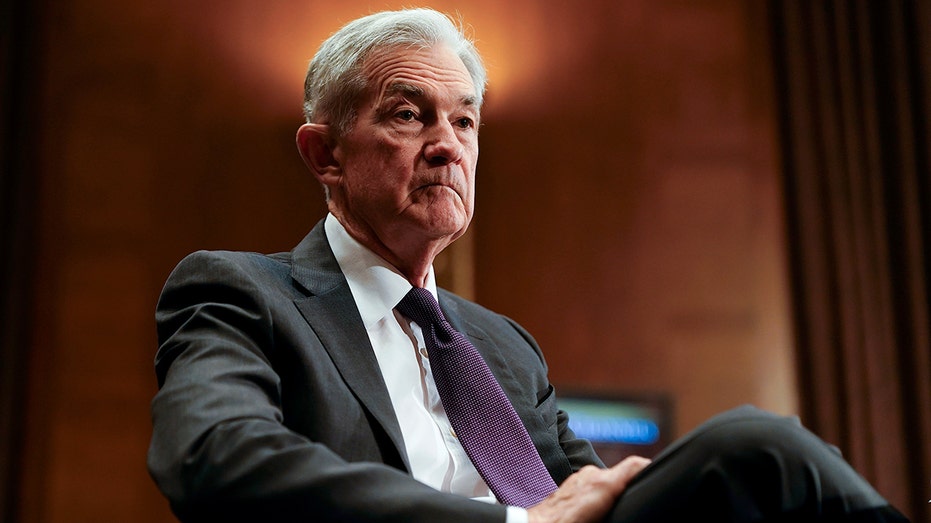Inflation remained well above the Fed's target in September ahead of rate cut decision
Bureau of Labor Statistics releases closely watched September inflation data
The Federal Reserve needs to keep inflation in check, expert says
Banrion Capital Management founder & CEO Shana Sissel analyzes the Federal Reserve’s approach to inflation, the impact of AI on job markets and more on ‘Making Money.’
Inflation stayed elevated in September and remained well above the Federal Reserve's target rate as policymakers prepare to meet next week to decide on their forthcoming interest rate move.
The Bureau of Labor Statistics on Friday said that the consumer price index (CPI) – a broad measure of how much everyday goods like gasoline, groceries and rent cost – rose 0.3% in September compared with the prior month, while it increased to 3% on a year-over-year basis from 2.9% in August. It was the highest headline CPI reading since January, when headline CPI was also 3%.
The monthly figure was in line with the expectations of economists polled by LSEG, while the year-over-year number was slightly lower than expected.
So-called core prices, which exclude volatile measurements of gasoline and food to better assess price growth trends, were up 0.2% from the prior month and 3% from a year ago. Both figures were slightly cooler than economists' expectations.
US BUSINESSES AND CONSUMERS SHOULDER THE BULK OF TARIFF COST BURDEN, GOLDMAN SACHS FINDS
High inflation has created severe financial pressures in recent years for most U.S. households, which are forced to pay more for everyday necessities like food and rent. Price hikes are particularly difficult for lower-income Americans, because they tend to spend more of their already-stretched paychecks on necessities and have less flexibility to save money.
Food prices increased 0.2% in September and are up 3.1% year over year. The food at home index increased 0.3% on a monthly basis and was 2.7% higher than a year ago, while the food away from home index rose 0.1% from a month ago and is up 3.7% over the last year.
The index for meats, poultry and fish rose 0.8% in September and is up 6% from a year ago. Beef and veal prices rose 1.2% for the month and are up 14.7% from a year ago. Over the last year, pork prices are up 1.6% and poultry is up 1.4%, while fish and seafood prices are up 2.1% since last September.
Egg prices declined 4.7% on a monthly basis and are down 1.3% over the last year. The fruits and vegetables index showed prices were flat in September and are up 1.3% year over year.
FED MINUTES SHOW POLICYMAKERS REMAIN CONCERNED ABOUT INFLATION AS THEY WEIGH RATE CUTS

Headline CPI inflation hit 3% in September, the highest reading since January. (Robert Nickelsberg/Getty Images / Getty Images)
Energy prices rose 1.5% in September after rising 0.7% in August, and are 2.8% higher than a year ago. The gasoline index rose 4.1% in September, although it's down 0.5% from last year. Electricity prices declined 0.5% for the month and are up 5.1% over the past year.
Transportation service prices rose 0.3% in September and are up 2.5% from last year. Motor vehicle maintenance and repair costs increased 0.2% and are up 7.7% over the last year. Airline fares rose 2.7% for the month and are up 3.2% since last year.
Housing prices increased 0.2% for the month and are up 3.6% from a year ago. Tenants' and household insurance costs jumped 1.2% in September and are up 7.5% year over year.
The September CPI report was delayed from Oct. 15 due to the ongoing government shutdown, as BLS workers were initially furloughed – though they were later recalled to complete this report so that it could be used to determine the 2026 cost-of-living adjustment (COLA) for Social Security.
FED'S MIRAN DOWNPLAYS IMPACT OF TRUMP'S TARIFFS ON GROWTH, INFLATION

Federal Reserve Chair Jerome Powell has noted the labor market weakness and said policymakers remain mindful of inflation concerns. (Kent Nishimura/Getty Images / Getty Images)
The inflation data comes as the Federal Reserve is set to hold its next monetary policy meeting next week. Policymakers are expected to cut interest rates despite inflation remaining well above the Fed's 2% target due to concerns about the labor market weakening. Inflation had been trending toward 2% earlier in the year, though the impact of tariff costs being passed on to consumers has pushed it away from the target.
"The impact from tariffs has been felt mostly in lower-end consumption imports. The tariff effects will probably increase the longer they remain in place. Companies did the easy tasks first but remain resistant to passing the tariffs through to inflation-phobic consumers, which will probably fade," said Eric Teal, chief investment officer for Comerica Wealth Management. "Ultimately, we believe the pass-through rate approaches nearly 75% which is higher than the 50% we have observed thus far."
"The cooler-than-expected CPI confirms what we've seen overall from private data during the government shutdown – little indication that inflation is surging or that the labor market is falling off a cliff," said Ellen Zentner, chief economic strategist for Morgan Stanley Wealth Management. "For a Fed focused on prudent ‘risk management,’ that should translate into another rate cut next week, and likely more to follow."
GET FOX BUSINESS ON THE GO BY CLICKING HERE
Markets still anticipate the Fed will cut its benchmark interest rate by 25 basis points at next week's meeting, with the CME FedWatch tool showing a 96.7% probability of a cut that size.




















